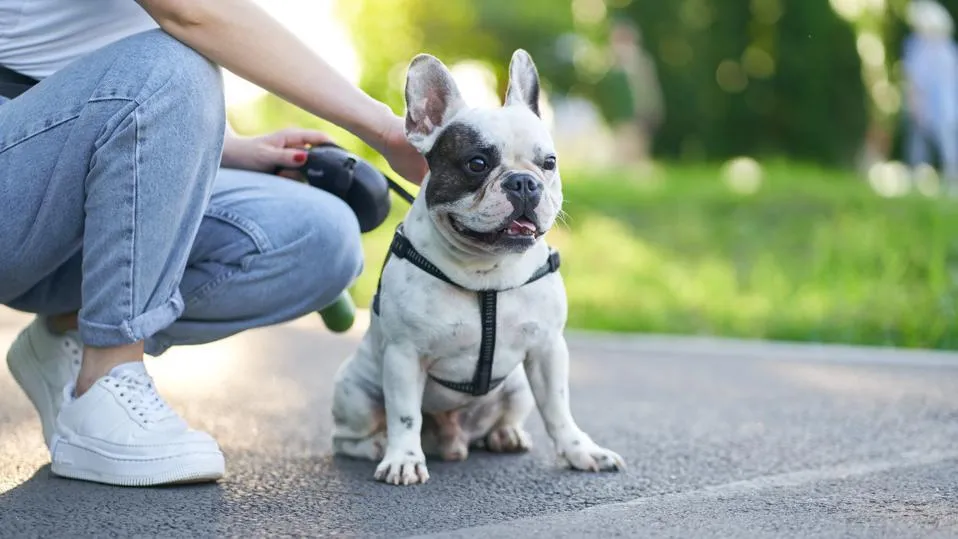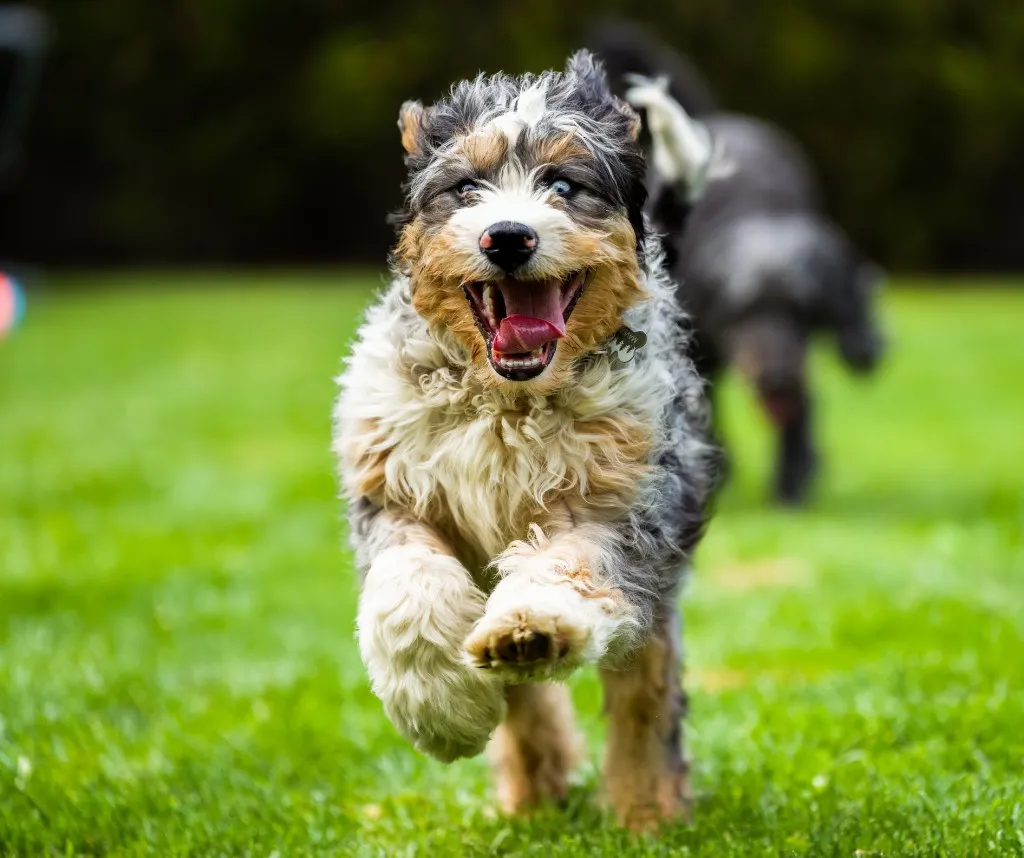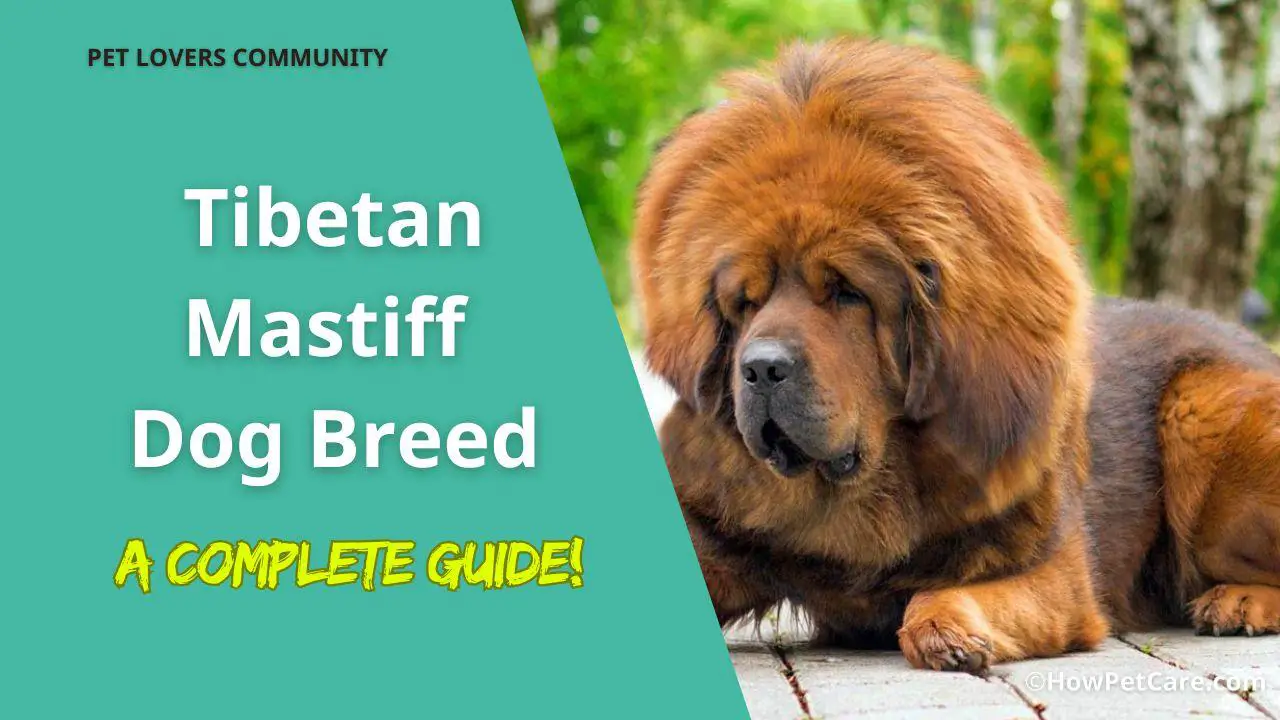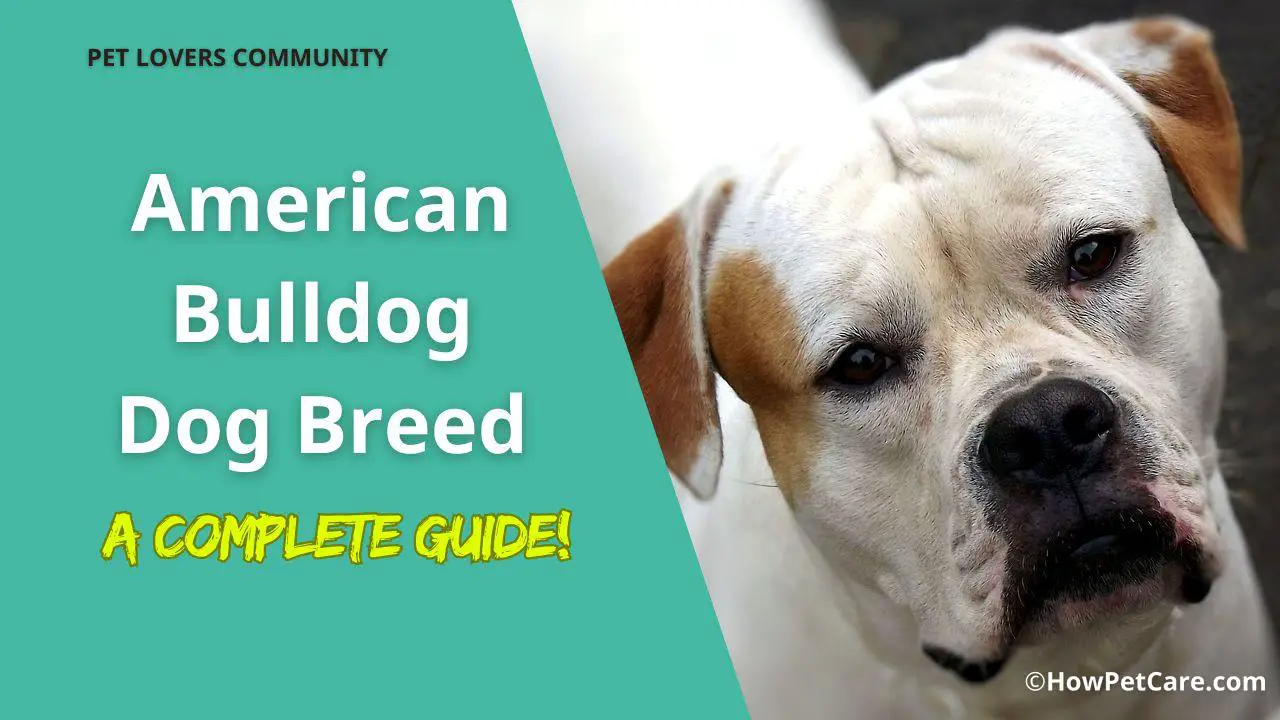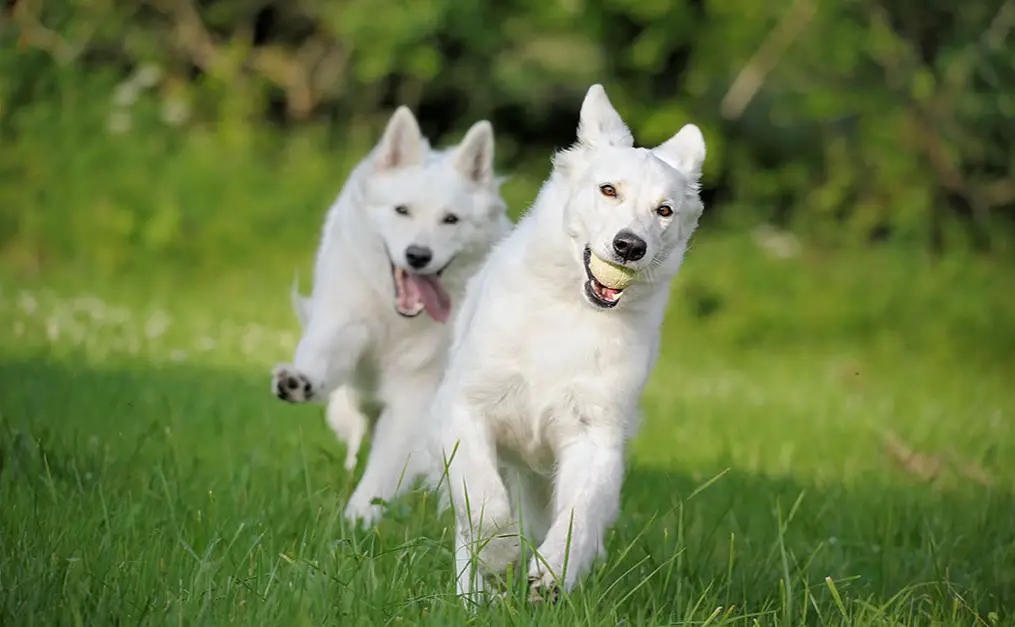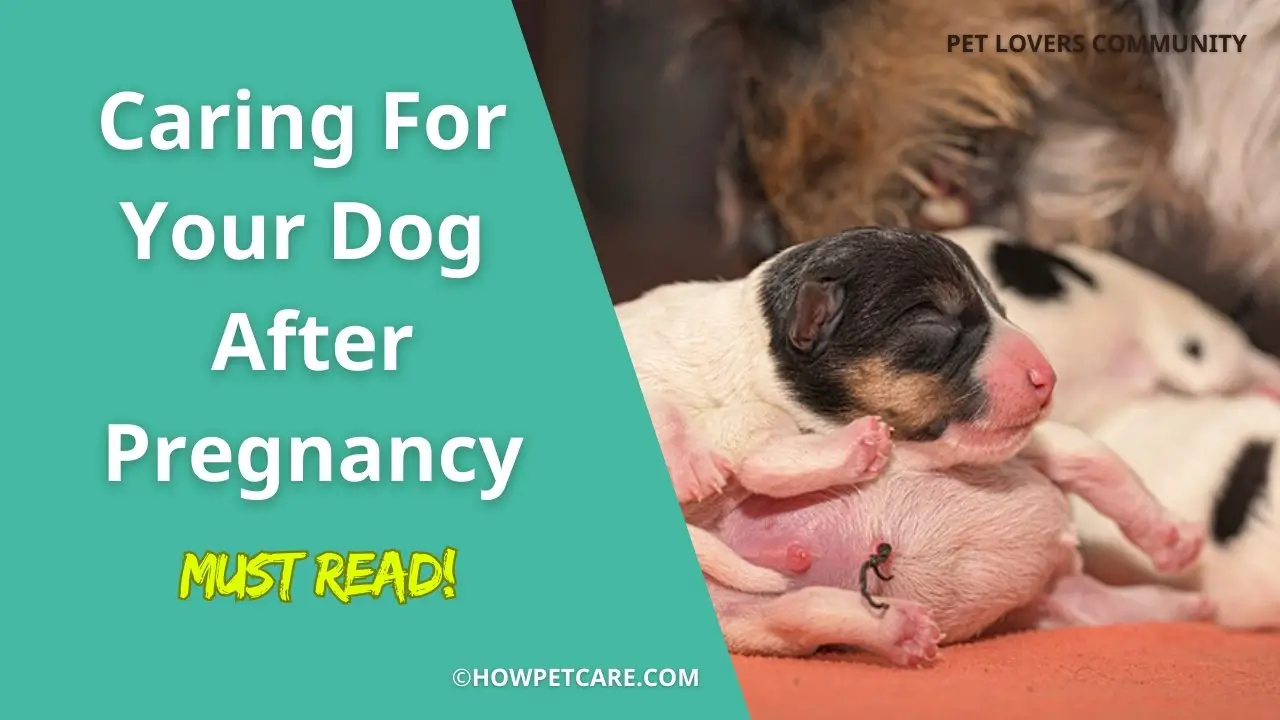Ah, the Dachshund – that adorable little sausage dog that’s captured hearts worldwide!
With their long bodies, short legs, and big personalities, these pups are truly one-of-a-kind.
But there’s so much more to these pint-sized pooches than meets the eye.
Whether you’re a lifelong Dachshund devotee or just considering bringing one into your home, this guide will give you the lowdown on everything you need to know about this charming breed.
So let’s dive in and explore the wonderful world of the Dachshund!

The Dachshund at a Glance: Small Dog, Big Attitude
Dachshunds may be small in stature, but they more than make up for it with their larger-than-life personalities.
These feisty little dogs are known for their courage, intelligence, and unwavering loyalty to their humans.
Originally bred in Germany to hunt badgers (hence their name, which literally means “badger dog” in German), Dachshunds have a natural instinct to dig and chase.
This tenacious spirit is still very much alive in modern Dachshunds, even if their hunting days are long behind them.
As a proud Dachshund owner myself, I can attest to their boundless energy and zest for life.
My little guy, Fritz, never fails to make me laugh with his antics – whether he’s trying to “hunt” his squeaky toys or burrowing under blankets for an impromptu nap.
It’s this playful nature that makes Dachshunds such beloved companions.

Physical Characteristics: Long and Low to the Ground
One of the most distinctive features of the Dachshund is, of course, their unique body shape.
These dogs are famously long and low, with short, sturdy legs and a deep chest.
This unusual build earned them the nicknames “wiener dog” and “sausage dog” – terms of endearment that many Dachshund owners embrace with pride. Dachshunds come in two sizes:
- Standard: Typically weighing between 16-32 pounds
- Miniature: Usually under 11 pounds
Regardless of size, all Dachshunds share that iconic elongated silhouette.
Their long backs, while adorable, can make them prone to back problems.
As responsible pet owners, it’s crucial to support their spine by lifting them properly and discouraging jumping from high surfaces.

Coat Varieties: A Dachshund for Every Taste
One of the things I love most about Dachshunds is the variety of coat types available.
These dogs come in three distinct coat varieties, each with its own unique charm:
- Smooth-coated: Short, sleek hair that’s easy to maintain
- Long-haired: Silky, flowing locks that give them an elegant appearance
- Wire-haired: A coarse, bristly coat that gives them a rugged look
And let’s not forget about colors! Dachshunds come in a rainbow of hues, including:
- Solid colors like red, cream, and black
- Two-tone patterns like black and tan or chocolate and tan
- Dappled or merle patterns for a truly unique look
With so many options, there’s truly a Dachshund for every taste!
Personality and Temperament: Big Dog Energy in a Small Package
Don’t let their size fool you – Dachshunds have the heart and courage of a much larger dog. These little pups are known for their:
- Bravery: They’ll fearlessly stand up to much larger dogs or perceived threats
- Intelligence: Dachshunds are quick learners, though they can be a bit stubborn
- Loyalty: They form strong bonds with their families and are fiercely protective
- Playfulness: Their silly antics and love of games make them great family pets
However, it’s important to note that Dachshunds can sometimes be a bit too brave for their own good.
Their tendency to bark at anything they perceive as a threat means early socialization and training are crucial.
Training and Exercise: Keeping Your Dachshund Happy and Healthy
While Dachshunds don’t require as much exercise as some larger breeds, they still need regular activity to stay healthy and prevent obesity.
Aim for at least 30 minutes of exercise per day, which can include:
- Short walks
- Play sessions in the yard
- Indoor games on rainy days
When it comes to training, patience is key. Dachshunds can be stubborn, but they’re also eager to please their humans.
Positive reinforcement techniques work best with these sensitive souls.
Consistency and plenty of praise will go a long way in shaping your Dachshund into a well-behaved companion.

Health Considerations: Protecting Your Pup’s Well-being
Like all breeds, Dachshunds have some specific health concerns to be aware of:
- Intervertebral Disc Disease (IVDD): Due to their long backs, Dachshunds are prone to spinal issues
- Obesity: Extra weight puts strain on their backs, so maintaining a healthy diet is crucial
- Eye problems: Some Dachshunds may develop progressive retinal atrophy or other eye conditions
- Patellar luxation: This knee problem is more common in miniature Dachshunds
Regular check-ups with your vet and a healthy lifestyle can help prevent or manage many of these issues.
Remember, a healthy Dachshund is a happy Dachshund!
Living with a Dachshund: What to Expect
Bringing a Dachshund into your life is an adventure you won’t regret.
These charming little dogs make wonderful companions for a variety of households.
They’re great with children, though supervision is always recommended due to their small size and potential for back injuries.
Dachshunds can adapt well to apartment living, but they do have a tendency to bark.
Early training can help manage this behavior. They also have a strong prey drive, so be cautious if you have smaller pets like rabbits or hamsters.
One thing’s for sure – life with a Dachshund is never boring!
Their playful nature and unwavering loyalty make them a joy to have around. Just be prepared for plenty of cuddles and the occasional stubborn moment.

Grooming and Care: Keeping Your Dachshund Looking Their Best
Grooming needs vary depending on your Dachshund’s coat type:
- Smooth-coated: Weekly brushing and occasional baths
- Long-haired: Regular brushing to prevent tangles, more frequent baths
- Wire-haired: Hand-stripping a few times a year, regular brushing
All Dachshunds benefit from regular nail trims, ear cleaning, and dental care.
Establishing a grooming routine early on will make these tasks easier for both you and your pup.
The Dachshund Community: Joining the Club
Once you become a Dachshund owner, you’ll quickly realize you’re part of a passionate community.
From local Dachshund meetups to online forums, there are plenty of ways to connect with fellow “wiener dog” enthusiasts.
Don’t be surprised if you find yourself swapping Dachshund stories and sharing adorable photos with other owners!
In conclusion, Dachshunds are truly special dogs that bring joy and laughter to countless homes around the world.
Their unique appearance, coupled with their big personalities, make them stand out in the canine world.
While they may require some special considerations due to their long backs, the love and companionship they offer make it all worthwhile.
So, whether you’re already a proud Dachshund parent or considering adding one to your family, embrace the quirks and charms of these lovable long dogs.
After all, life is simply better with a Dachshund by your side!
Breed information
| Characteristic | Information |
|---|---|
| Name | Dachshund |
| Origin | Germany |
| Group | Hound Group |
| Size | Small |
| Height (Standard) | 8-9 inches (20-23 cm) |
| Height (Miniature) | 5-6 inches (13-15 cm) |
| Weight (Standard) | 16-32 lbs (7-14 kg) |
| Weight (Miniature) | Up to 11 lbs (5 kg) |
| Lifespan | 12-16 years |
| Coat | Smooth, long, or wirehaired (three coat types) |
| Color | Various including red, black & tan, chocolate, dapple, and more |
| Temperament | Curious, lively, intelligent, affectionate |
| Energy Level | Moderate |
| Exercise Needs | Moderate; daily walks and playtime |
| Intelligence | High; can be independent but also quick learners |
| Trainability | Moderate; consistent and positive reinforcement training needed |
| Grooming Needs | Low to moderate; smooth coat needs less grooming, long and wirehaired coats need more regular care |
| Shedding | Low (smooth coat) to moderate (long and wirehaired coats) |
| Health Issues | Intervertebral disc disease, dental issues, obesity, certain hereditary conditions (e.g., PRA) |
| Diet | High-quality dog food, typically 1-2 cups per day depending on activity level and size |
| Good with Children | Generally good, though may need supervision with very young children due to their small size |
| Good with Other Pets | Can be good with other pets if properly socialized; may have a high prey drive |
| Barking | Moderate to high; known for being vocal and alert |
| Adaptability | Adaptable to various living situations; requires adequate exercise to stay healthy |
| Trainability | Can be stubborn; benefits from positive reinforcement training |
| AKC Classification | Recognized by the American Kennel Club (AKC) |
Sources:
- American Kennel Club (AKC) – Dachshund Breed Information
- The Kennel Club (UK) – Dachshund Breed Standard
- Vetstreet – Dachshund Overview

